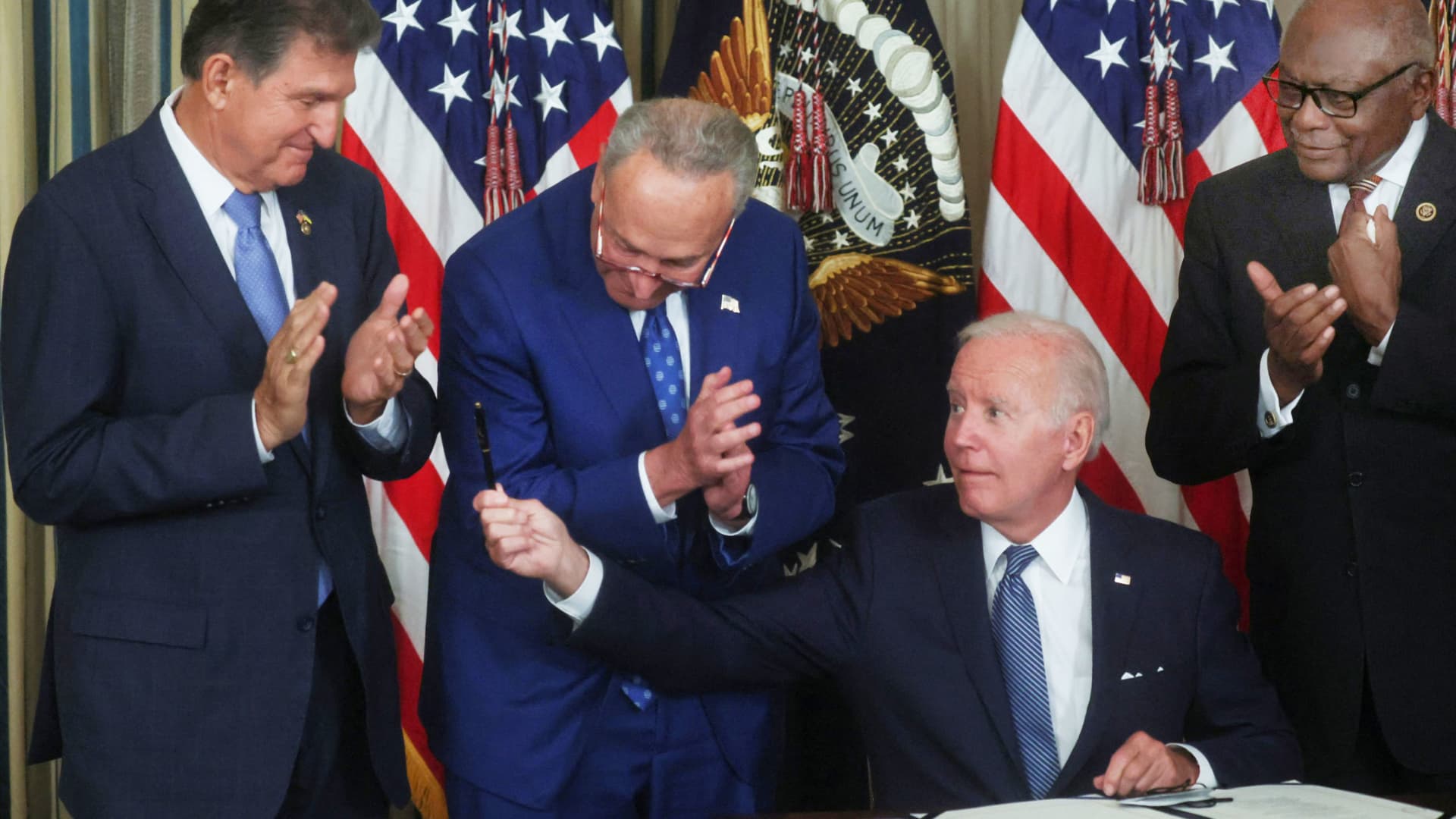
After more than a year of debate over costs, taxes, tax credits and regulations, President Joe Biden finally signed his sweeping tax, health and climate bill into law — albeit a significantly reduced version of the $1.75 trillion Build Back Better plan he was pushing for last year.
The president signed the newly renamed Inflation Reduction Act into law flanked by Senate Majority Leader Chuck Schumer, D-N.Y.; Sen. Joe Manchin, D-W. Va.; and Reps. Jim Clyburn, D-S.C. and Kathy Castor, D-Fl.
“With this law, the American people won and the special interests lost,” Biden said in remarks before he signed the bill.
The new law includes a $369 billion investment in climate and energy policies, $64 billion to extend a policy under the Affordable Care Act to reduce health insurance costs, and a 15% corporate minimum tax aimed at companies that earn more than $1 billion a year.
Read more: Biden’s corporate tax hike in the Inflation Reduction Act won’t hurt most U.S. companies, Wall Street analysts say
The $437 billion spending package is expected to raise $737 billion in revenue over the next decade, the biggest share coming from reductions in drug prices for Medicare recipients and tax hikes on corporations. Roughly $124 billion is expected to come from increased IRS enforcement, meaning tougher and more frequent audits for the wealthy. It’s projected to reduce the deficit by more than $300 billion over a decade.
To get a deal done, Biden had to give up some of his favorite pieces of his original Build Back Better bill, including universal child care and tax cuts for the middle class. Manchin, a conservative Democrat, was also a late Democratic holdout until he and Schumer struck a deal moving the bill forward earlier this month.
Freshman Sen. Kyrsten Sinema, D-Ariz., held up passage in the evenly divided Senate at the last minute over a provision that would have closed the so-called carried interest loophole that allows private equity managers and hedge fund executives to pay significantly lower tax rates than most taxpayers.
While introducing the president, Schumer thanked Manchin along with House Speaker Nancy Pelosi, D-Calif., and the White House staff “who gave it their all to finishing this bill.”
The bill narrowly passed the U.S. Senate 51-50 on Aug. 7 with no Republican votes. Vice President Kamala Harris cast the tiebreaking vote, giving Democrats a win.
The U.S. House passed the bill Friday by a 220-207 margin.
In remarks, Biden noted that every Republican in Congress voted against the measure.
“Let’s be clear. In this historic moment, Democrats sided with the American people and every single Republican in the Congress sided with a special interest in this vote,” he said. “Every single one.”






